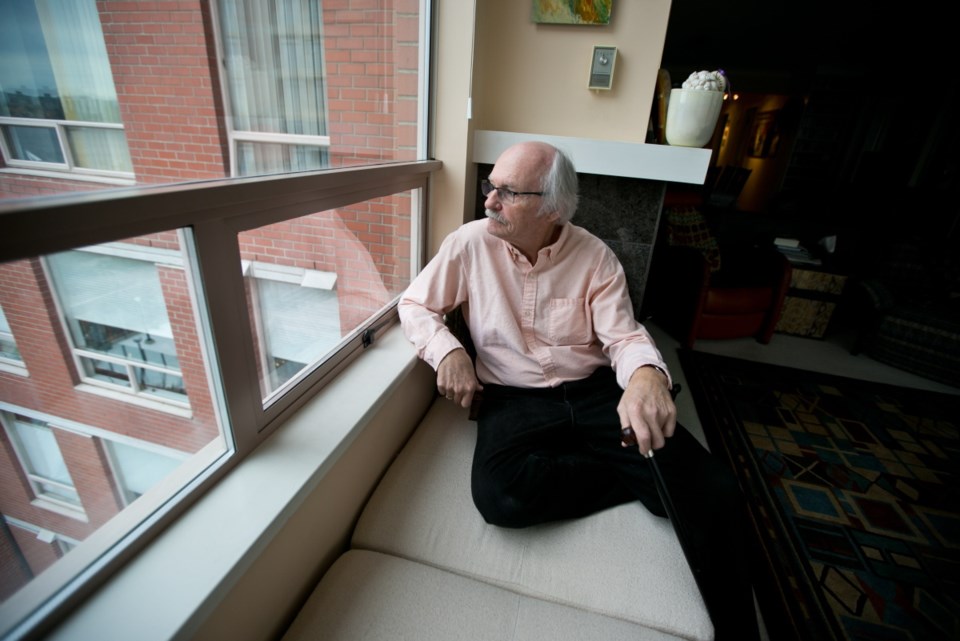The federal government has introduced a long-awaited law spelling out the conditions under which seriously ill or dying Canadians may seek doctors or nurses’ help to end their lives — but Victoria experts say they are not impressed.
The legislation tabled Thursday says there should be a choice of medically assisted death “for adults who are suffering intolerably and for whom death is reasonably foreseeable.”
That’s more restrictive than what Canada’s highest court ruled last year when it overturned the prohibition on doctor-assisted suicide. The Supreme Court did not require a person’s condition to be terminal for them to request a doctor’s help to end their lives.
As written, the legislation would make many people live with suffering they consider intolerable because their condition will not directly cause death, and that would include Lee Carter, whose case was decided by the court, said University of Victoria professor Gillian Calder.
“The Supreme Court, I imagine, would be shaking their heads today,” said Calder, an expert in constitutional law. She said the draft legislation “is a huge step back” from the caring and compassionate approach recommended by an all-party committee that studied the issue, nor does it provide clear direction for health-care practitioners about boundaries for reasonable foreseeable death.
The bill says those eligible for physician assistance must be mentally competent adults, at least 18, who voluntarily request help with informed consent. They must have a serious and incurable disease, illness or disability and be in an advanced state of irreversible decline in capability. The person must be on a course toward the end of life, but while death would have to be foreseen, there would not have to be a specific prognosis or prospective time period before death.
Victoria resident John Priddle, a founding member of the local chapter of Dying With Dignity, said he feels “betrayed” by the draft legislation.
“All competent adult Canadians should feel angry and insulted by this effort,” said Priddle, who lives with a degenerative disease that impedes speech, balance, movement and swallowing. The draft legislation prevents anyone from consenting to assisted death in advance, no matter how competent they are, he said, predicting that people will be forced to end their lives prematurely while they still can.
Priddle said the draft legislation negates the substance of the Supreme Court ruling in 2015 that prohibiting doctor-assisted suicide violates Canadians’ right to life, liberty and security of the person.
Victoria NDP MP Murray Rankin, vice-chair of the Special Joint Committee on Physician Assisted Dying, said he plans to propose amendments to improve the draft legislation, which does not reflect many of the committee’s 21 recommendations.
B.C. Health Minister Terry Lake said: “Obviously, we will take a look at this legislation very closely. We’ve been working closely with the College of Physicians and Surgeons and the College of Nurses to ensure we are protecting vulnerable people and making sure that the law is followed.”
To get a doctor’s help in facilitating a death, a written request would be required, either from the patient or a designated person if the patient is incapable, and the request would need to be signed by two independent witnesses. Two independent physicians or authorized nurse practitioners would have to evaluate it and there would be a mandatory 15-day waiting period unless death or loss of capacity to consent was imminent.
Michael Bach, vice-president of the Canadian Association for Community Living, said narrowing the scope to people who are dying takes mental health off the table as a sole reason for assisted death, something the organization called an essential step. Bach expressed concern that two doctors signing off is not enough, and said he hopes some kind of legal tribunal will come into effect.
The Supreme Court gave the federal government a year — later extended to June 6 — to come up with a new law that recognizes the right of clearly consenting adults, who are enduring intolerable physical or mental suffering, to seek medical help to end their lives.
The government is going to appoint one or more independent bodies to study some outstanding issues not explicitly dealt with in the legislation, including whether it could cover mature minors, people who suffer only from mental illnesses and whether people could have advance directives that would grant them access to medically assisted death should a situation arise. The government also will work with provinces to co-ordinate end-of-life care and connect patients with doctors or nurse practitioners willing to help them die.
Interim Conservative leader Rona Ambrose, who was health minister in the previous government, said she’s concerned there’ll be little time for all MPs to debate the merits of the new bill and pass it in both houses of Parliament by June 6.
Federal Justice Minister Jody Wilson-Raybould and Health Minister Jane Philpott both seemed to acknowledge the inevitability of a court challenge. “For some, medical assistance in dying will be troubling. For others, this legislation will not go far enough,” said Wilson-Raybould.
Some members of the special committee and some advocacy groups have called on the government to pre-emptively ask the Supreme Court whether the new law complies with the charter.



